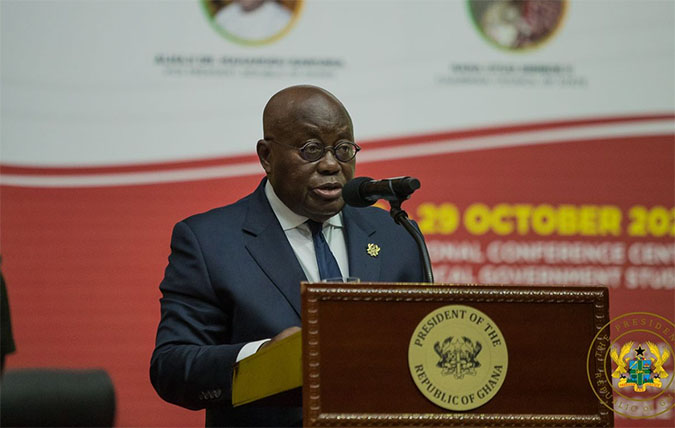PRESIDENT AKUFO-Addo has explained why his administration decided to go to the International Monetary Fund (IMF) for support.
According to him, many countries have been forced to approach the IMF in the face of global economic challenges brought about by the devastating effects of the COVID-19 pandemic, which was also exacerbated by the Russian invasion of Ukraine.
He made this explanation when he swore in 10 new ambassadors and high commissioners to represent the country’s interest abroad at the Jubilee House (Presidency) Thursday evening.
“Economies have been plunged into recession; businesses have collapsed, and lives and livelihoods have been disrupted. Food and fuel prices have escalated dramatically, as global and domestic inflationary pressures mount,” he lamented while expressing optimism that sooner, rather than later, the world would make up on lost time.
In Ghana’s case, the President said “we have decided to seek the collaboration of the IMF to repair, in the short run, our public finances, which have taken a severe hit in very recent times as a result, whilst we continue to work on the medium to long-term structural changes that are at the heart of our goal of creating a Ghana Beyond Aid, that is building a resilient, robust Ghanaian economy.”
He was, however, confident that “with determination, hard work, unity and the proverbial Ghanaian sense of enterprise, we will make it, we will succeed,” saying “this too shall pass.”
He, therefore, urged the ambassadors and high commissioners to familiarise themselves with the objectives of the Ghana CARES ‘Obaatanpa’ Programme, which sets out Ghana’s roadmap towards the country’s economic recovery.
Dr. Mark Assibey-Yeboah
Meanwhile, Dr. Mark Assibey-Yeboah, former Chairman of Parliament’s Finance Committee, has given thumbs-up to government’s decision to go for an IMF package, saying Ghana’s economy performs better anytime it goes to the IMF, adding that loans contracted under agreement would attract zero interest.
Speaking in an interview on Citi FM recently, he stressed that it was more prudent for Ghana to borrow from the fund than from the open market.
“When the IMF are in town, we get things done right. If you go back on the programme, we had Atta Mills 2009 to 2012, fantastic. The macro indices at the time… the best we have seen in a long time between 2009 and 2012. The moment the fund left in 2012, everything went berserk. If I were the Finance Minister, I will park the economy at IMF,” he said.
“The IMF is like Bank of Ghana to all countries…you fall on them for assistance. We borrow on a weekly basis. This Friday, there will be an auction, we will borrow about GH¢1 billion. Last week, we borrowed. Every Friday, we go for auction at the Bank of Ghana, we borrow money. We borrow at 27 per cent (interest rate). If you go to the fund and they give you $1 billion, it will be interest-free (0%).
They will give you a moratorium and give us 25 years to repay,” he explained.
Government is targeting between US$1.5 billion and US$3 billion from the IMF under the economic support programme, a document released by the Ministry of Finance, spelling out some details of its engagement with the IMF this year said.
The ministry explained that it sought to secure the fund under a neatly introduced innovative blended programme from the IMF, dubbed ‘High Combined Credit Exposure’ (HCCE) policy.”
BY Charles Takyi-Boadu


